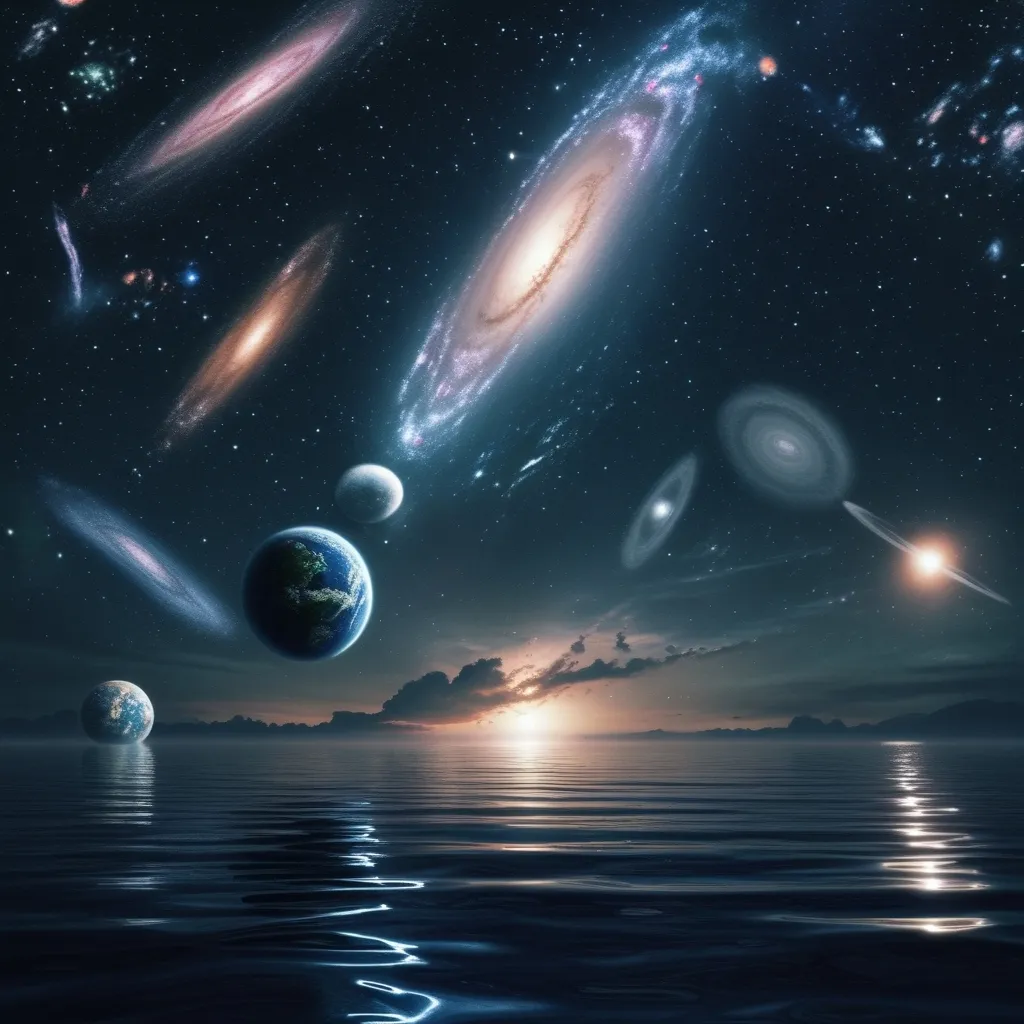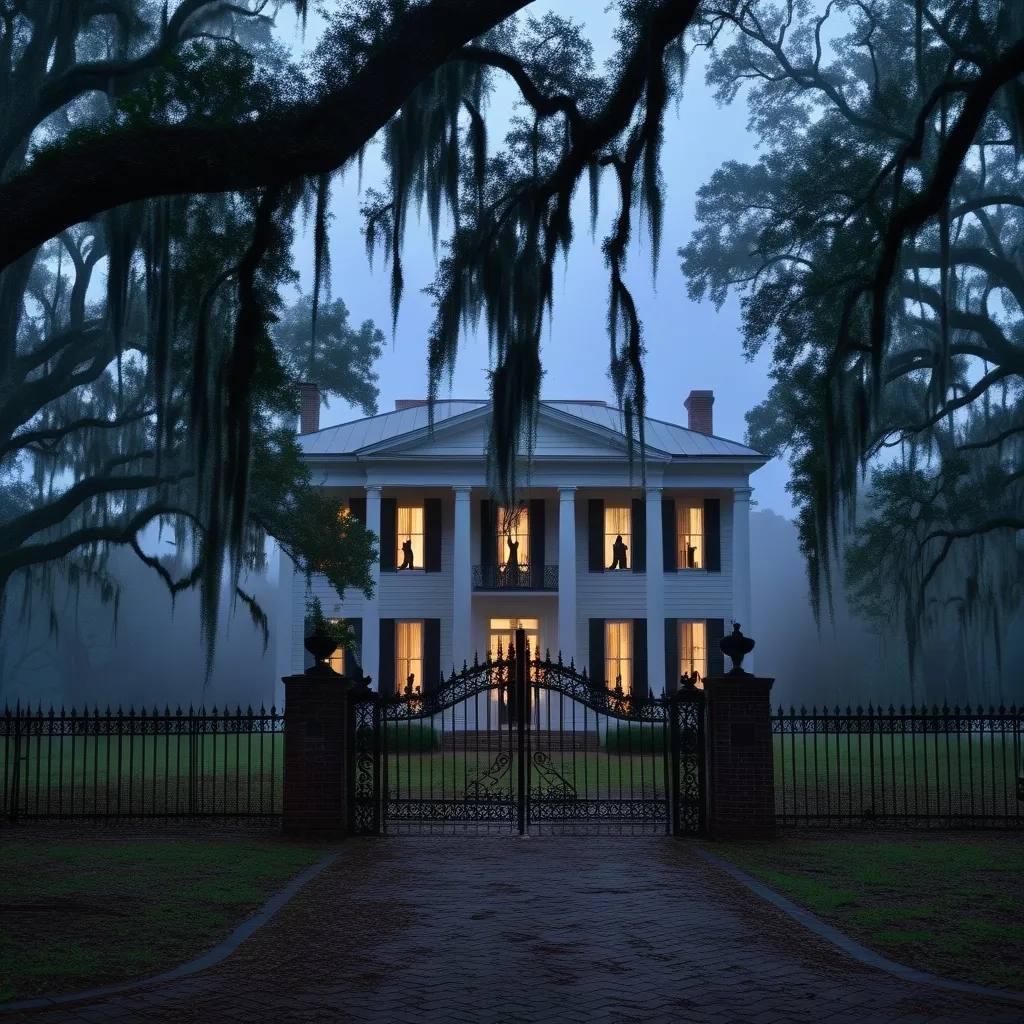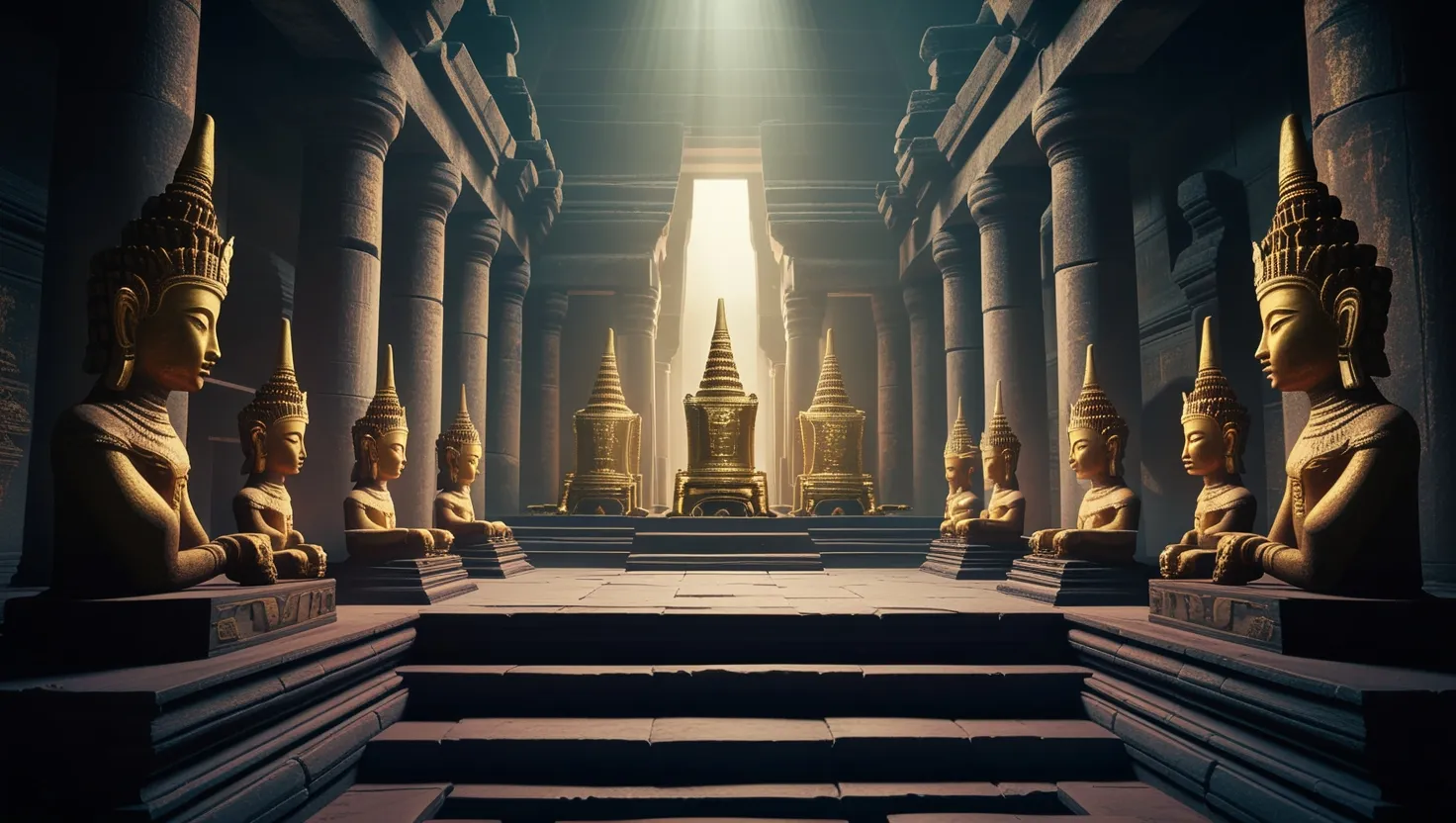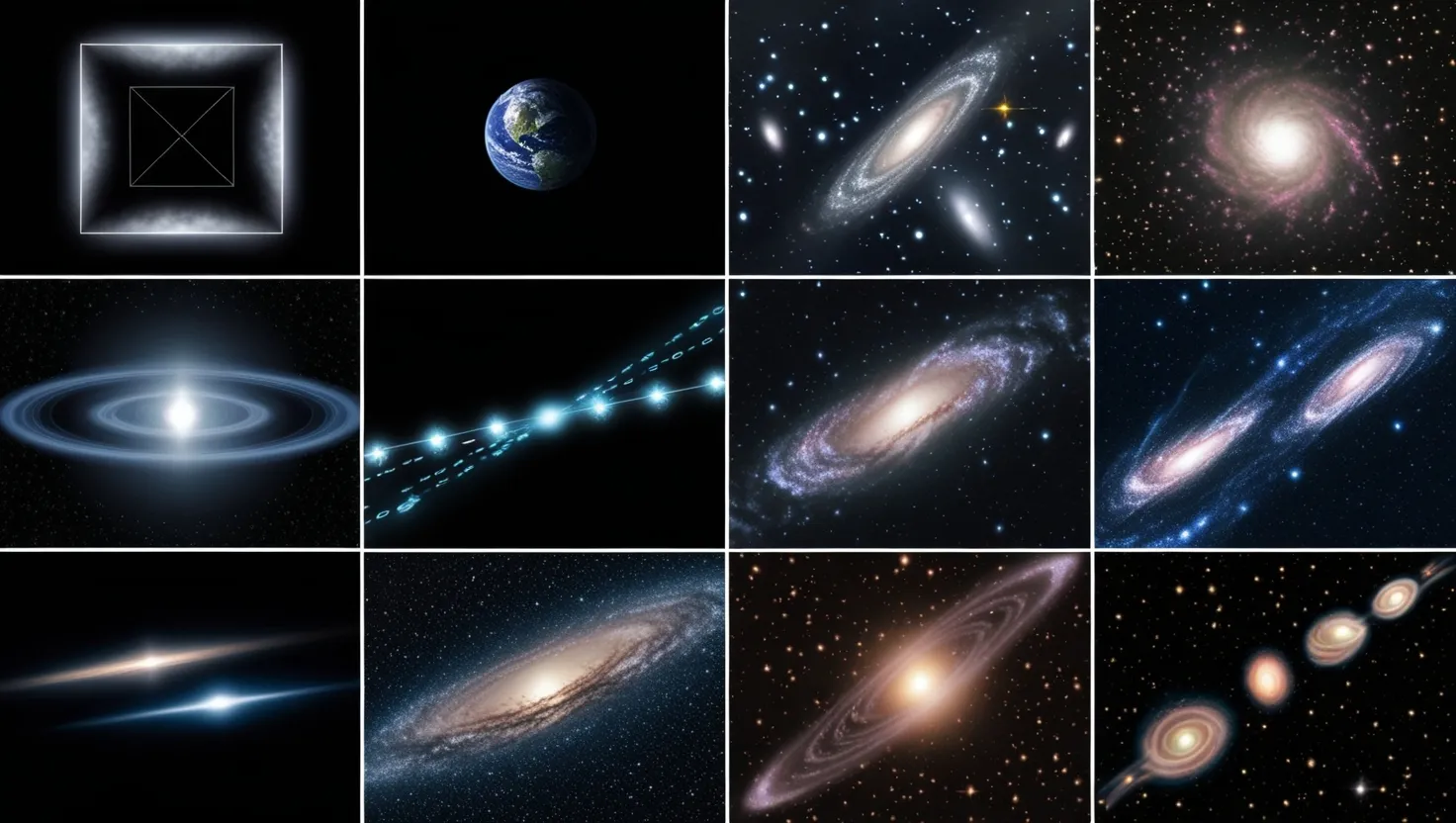Have you ever had that weird feeling that your life is just a bit too perfect? Like everything’s falling into place a little too neatly? Well, you’re not alone. Welcome to the mind-bending world of simulation theory.
Imagine waking up one day and realizing that everything you know - your memories, your experiences, even your deepest beliefs - might not be real. It’s like The Matrix, but without the cool sunglasses and leather jackets. This is the core idea behind simulation theory, and it’s been messing with people’s heads for decades.
So, what exactly is simulation theory? In a nutshell, it suggests that our entire reality could be nothing more than an incredibly advanced computer simulation. Yep, you read that right. Everything you see, touch, and experience might just be lines of code in some cosmic supercomputer.
This isn’t just some wild idea cooked up by sci-fi writers. It’s actually a serious philosophical concept that’s been debated by some of the brightest minds out there. The theory really took off when philosopher Nick Bostrom dropped his mind-blowing paper “Are You Living in a Computer Simulation?” back in 2003. Bostrom basically said that if super advanced civilizations can create complex simulations with conscious beings, then odds are we’re living in one of those simulations right now.
But hold up, this isn’t just some modern tech-inspired madness. The idea of questioning the nature of reality goes way back. Ancient philosophers were pondering this stuff long before we had computers or even electricity. They were just using different terms and concepts.
Now, let’s break this down a bit. The simulation theory suggests that what we think is reality is actually just a super realistic computer program. We’re talking about a program so advanced that it simulates everything from the tiniest subatomic particles to the vast expanse of the universe. And us humans? We’re not flesh and blood beings, but just really complex bits of code.
It’s kind of like we’re all characters in the world’s most detailed version of The Sims. Except in this case, we’re the ones inside the screen, blissfully unaware that our entire existence is just a bunch of ones and zeros.
So, if we’re living in a simulation, who’s the one running the show? According to Bostrom, it could be some future version of humanity that’s gotten so advanced they can run detailed simulations of their ancestors. That’s us, by the way. These simulated beings (again, us) would have artificial consciousness that’s so convincing, we can’t tell the difference between ourselves and “real” humans.
David Chalmers, a philosophy professor who’s clearly not afraid of big ideas, takes this a step further. He suggests that the entity responsible for our simulation could be a “programmer in the next universe up.” This programmer might seem like an all-knowing, all-powerful god to us, but in their own universe, they could just be some teenager messing around on their computer.
Now, you might be thinking, “Okay, but what are the chances that we’re actually living in a simulation?” Well, buckle up because the numbers are pretty wild. Bostrom suggests it’s about a one in three chance. Chalmers is a bit more conservative, putting it at least 25 percent. But some recent analyses say it’s almost a 50-50 shot. And here’s the kicker: if humans ever develop the ability to simulate conscious beings, the odds of us being virtual entities skyrocket.
If this is all true, it’s pretty mind-blowing stuff. It challenges everything we think we know about reality, free will, and consciousness. But here’s the thing: proving or disproving this theory is incredibly tough. Some scientists, like physicist Frank Wilczek, argue that our universe is just too complex to be simulated. It would take an insane amount of energy and time. Others, like Sabine Hossenfelder, say the whole idea isn’t even scientific because we can’t test it.
But despite these criticisms, the simulation theory still captures people’s imaginations. It resonates with folks who see patterns and coincidences in their lives that seem too perfect to be random. For some, it’s easier to swallow than the idea that the universe is just a big, chaotic accident.
The theory also fits pretty well with our current tech advancements, especially in AI and virtual reality. I mean, if we can create simulations like The Sims or Grand Theft Auto, is it really that crazy to think that a more advanced civilization could create an entire simulated universe?
To really understand if we’re living in a simulation, we need to look at some hard evidence. We already use computers to run all sorts of simulations, from video games to scientific models. These simulations use algorithms that interact with their environments in complex ways. The visuals and sounds we experience in these simulations are designed specifically for us to understand and interact with them.
So, if we are in a simulation, the reality we experience could be designed in a similar way - an interface created by the simulator for us to interact with. It’s like we’re all wearing some kind of cosmic VR headset, but we’ve forgotten we put it on.
A great way to wrap your head around this is to think about video games. In games like The Sims or Grand Theft Auto, the game only renders what the player can see at any given moment. It doesn’t waste processing power on stuff that’s off-screen. If our reality works the same way, the simulator might only be rendering what we can directly experience, rather than simulating the entire universe all at once. This would make the whole simulation thing a lot more doable in terms of computing power.
For some people, the simulation theory isn’t just a cool idea to think about - it’s a full-on belief system. Some folks believe there’s a higher power or energy running the simulation. Others point to weird coincidences or patterns in their lives as evidence that reality isn’t what it seems. The theory appeals to people who look at the complexity of human existence and the universe and think, “There’s no way this is all just random chance.”
As our technology keeps advancing, the idea of creating simulations that are indistinguishable from reality becomes more and more plausible. If humans ever develop the ability to simulate conscious beings, it would make it way more likely that we’re already living in a simulation. This raises all sorts of questions about the future of humanity and whether our actions are part of some grand experiment designed by a higher intelligence.
At the end of the day, the simulation theory is a mind-bending idea that challenges everything we think we know about reality and our place in the universe. While it’s still just a hypothesis, it’s sparked intense debate among scientists, philosophers, and regular folks like us.
Whether or not we’re actually living in a simulation, the theory encourages us to think deeply about the nature of existence and the possibilities that lie beyond our current understanding. It reminds us that no matter how advanced our technology becomes, there are always more questions to be asked and more mysteries to be unraveled.
So, the next time you’re staring up at the stars or pondering the meaning of life, take a moment to consider: could we be living in a simulation? And if we are, what does that mean for us and our place in the grand scheme of things?
It’s a lot to wrap your head around, but that’s what makes it so fascinating. The simulation theory isn’t just about whether we’re living in some cosmic version of The Sims. It’s about our never-ending quest to understand the universe and our own existence. It’s a reminder that reality might be way weirder and more complex than we ever imagined.
And hey, even if we are in a simulation, does it really change anything? We still have to get up in the morning, brush our teeth, and go about our day. Maybe the point isn’t to figure out if we’re in a simulation or not, but to make the most of our existence, whatever form it takes.
So, the next time something seems a little too perfect or a coincidence feels a little too coincidental, you might just wonder: is this all part of the simulation? And if it is, who’s the one playing the game?






